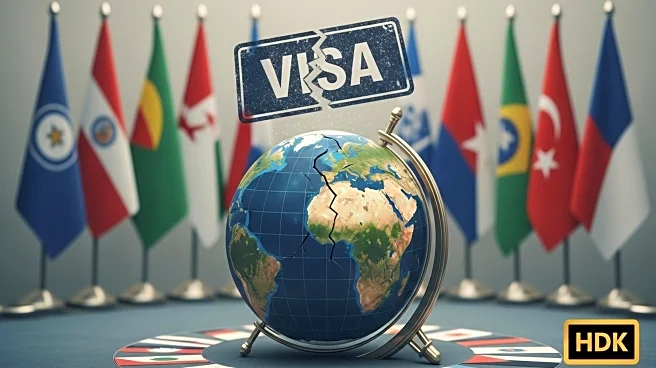What is the story about?
What's Happening?
The U.S. State Department has announced the revocation of visas for members of the Palestine Liberation Organization and the Palestinian Authority. This decision comes ahead of the United Nations General Assembly scheduled for September. The Palestinian Foreign Ministry expressed confusion over the move, labeling it a violation of the 1947 UN Headquarters convention. Additionally, the Israeli Air Force conducted strikes in Yemen's capital, Sanaa, targeting areas believed to host senior Houthi officials. The Israeli army anticipates a response from the Houthis following these strikes. Meanwhile, Turkey has decided to sever economic ties with Israel, closing its airspace to Israeli planes and prohibiting Turkish ships from docking in Israeli ports.
Why It's Important?
The revocation of visas for Palestinian officials by the U.S. could have significant diplomatic repercussions, potentially affecting U.S.-Palestinian relations and broader Middle Eastern diplomacy. The Israeli strikes in Yemen and Turkey's severance of ties with Israel further complicate regional dynamics, potentially escalating tensions. These developments may impact international diplomatic efforts and influence the geopolitical landscape in the Middle East, affecting stakeholders such as governments, international organizations, and regional alliances.
What's Next?
The upcoming UN General Assembly may serve as a platform for further diplomatic discussions or confrontations regarding the U.S. decision and regional tensions. The Israeli military's anticipation of a Houthi response could lead to increased military activity in Yemen. Turkey's actions may prompt diplomatic negotiations or retaliatory measures from Israel. These events could influence future policy decisions and international relations in the region.
















